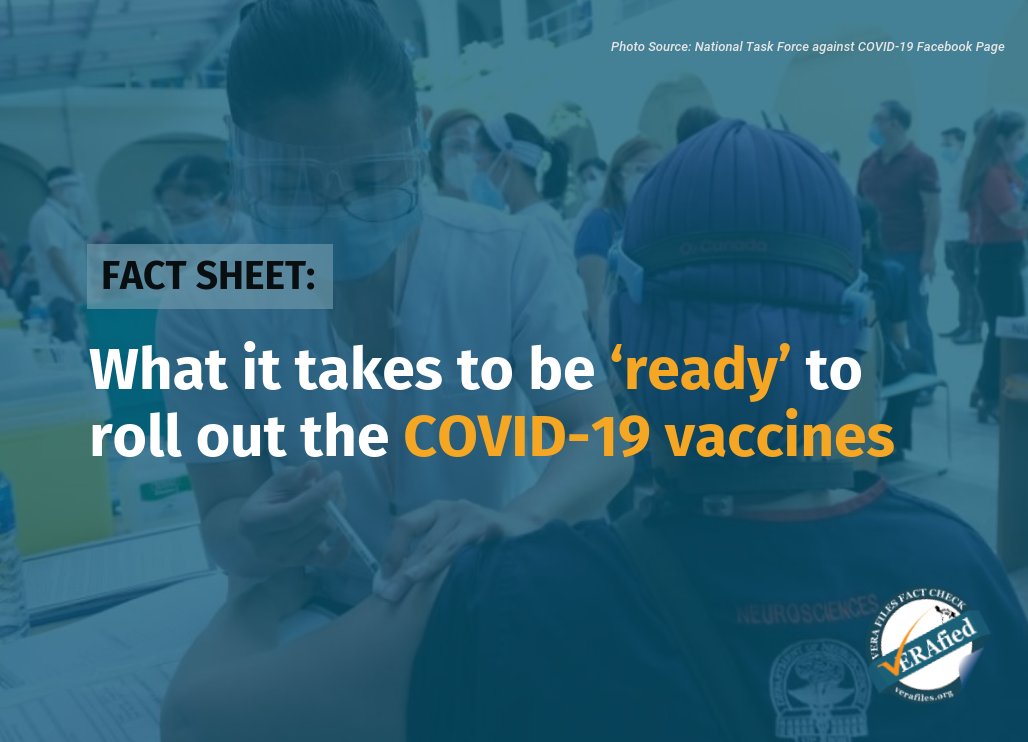An antiparasitic drug has become the center of strife among medical and health experts just as the Philippines tallied record-high numbers of coronavirus disease 2019 (COVID-19) infections in the first five months of 2021.
While global and local health authorities cited insufficient evidence to support ivermectin’s efficacy against the deadly virus, some medical groups and political figures claimed the opposite.
On April 29, AnaKalusugan Party-list Rep. Mike Defensor and SAGIP Party-list Rep. Rodante Marcoleta along with medical practitioners from the Concerned Doctors and Citizens of the Philippines distributed tablets of ivermectin to some residents of Quezon City amid the current health crisis.
The Food and Drug Administration (FDA), however, said the drug is not recommended for use against any viral infection, including COVID-19, and can only be prescribed within the limits of a compassionate special permit. (See VERA FILES FACT CHECK: Defensor claim that US allows ‘off-label’ use of ivermectin as COVID-19 treatment is misleading)
“We understand the desire of many concerned citizens to immediately find solutions to the threats of the COVID-19 pandemic… [W]e have to resist being swayed by others despite the absence of enough scientific evidence,” a May 2 statement by the Philippine College of Physicians read.
Over a year into the pandemic, there are still lingering questions about COVID-19 ー where it came from, how to stop its transmission, how long immunity against it will last. And gaps in information can be a cause for misunderstanding, misinformation, and what public health experts now call “midinformation.”
“In an outbreak, there is often a lot of very new information that’s changing very quickly because many different people are studying many different things,” said Nat Gyenes, director of the Digital Health Lab at global technology nonprofit Meedan.
“Those points in time where there’s either a changing information or where a question or piece of information is still being investigated, those are potential areas that can be [f]illed with information that’s inaccurate or is based on dated information,” added Gyenes, who also studies public health and technology at Harvard University’s Berkman Klein Center for Internet & Society.
The gap in knowledge, she says, does not fit in with existing categorizations of misinformation ー false information spread unintentionally ー and disinformation ー false information spread with the intent of harm.
“Midinformation” is the term to define information that may be misleading or inaccurate and that is “usually a result of changing scientific information or changing scientific consensus over time.”
“It may be true but we don’t have the evidence to support it yet,” Gyenes added.
The case of ivermectin is a “perfect example” of midinformation, said Christin Gilmer, a global health scientist and doctor of public health also from Meedan.
In the Philippine COVID-19 Living Clinical Practice Guidelines, constantly updated to reflect emerging science, experts from the Philippine Society for Microbiology and Infectious Diseases recommended against ivermectin based on currently available data.
Although some of the evidence from at least 16 randomized controlled trials (eight of which were preprints, or studies that were not yet peer-reviewed) suggested that ivermectin “may significantly reduce mortality,” this effect is still “very uncertain” due to very low quality of evidence as well as serious inconsistency, imprecision, and serious to very serious risk of bias in most studies.
In April and May, VERA Files Fact Check flagged two Facebook posts which made claims about ivermectin: one branding it as a “miracle drug” against COVID-19 and the other ensuring the medicine was proven to be safe and effective.
There is no cure yet for COVID-19, and most of the statements used to back up the claims in the two online posts were misleading and not proven. Still, they gained over 400,000 views. (See VERA FILES FACT CHECK: Ivermectin NOT yet proven to be ‘miracle drug’ vs COVID-19; VERA FILES FACT CHECK: UP expert’s claim on Ivermectin safety NEEDS CONTEXT)
A cursory search also revealed that in 2020, unverified information on ivermectin had circulated online and been debunked by several fact-checkers around the world.
Some Latin American health ministries (Peru, Brazil, Bolivia) have, in fact, even promoted ivermectin as a COVID-19 treatment despite poor scientific basis.
One influential observational study on ivermectin which claimed to show “a large reduction in COVID-19 mortality” was retracted and removed from a social sciences preprint server SSRN by its authors, with one of the researchers saying he “did not feel it was ready for peer review.”
The study, which had contributed to some governments’ public health policies, used a database owned by Illinois-based company Surgisphere, that was later discredited due to questions on reliability.
Speaking about earlier studies that indicate ivermectin having a positive effect, Gilmer said: “While the initial reports look good, there is still so much information we don’t have and people were [r]eporting on that headline as opposed to what we don’t actually know.”
This March, the European Medicines Agency (EMA) reviewed recently published scientific studies and found that “results from clinical trials were varied, with some studies showing no benefit and others reporting a potential benefit.”
“Laboratory studies found that ivermectin could block replication of SARS-CoV-2 (the virus that causes COVID-19), but at much higher ivermectin concentrations than those achieved with the currently authorised doses,” the report read.
It was also noted that most studies in the review “were small and had additional limitations,” referring to different sample sizes and dosing regimens and some studies mixing ivermectin with other drugs.
It is important to note, however, that the product comes not without harm, Gilmer told VERA Files. “If you’re treating things that are targeted for animals, some of whom weigh 800 pounds, 2,000 pounds, 4,000 pounds, it’s gonna be a lot more concentrated than it will be in human beings… you can overdose on it.”
Some of the most common adverse effects observed from the use of ivermectin were gastrointestinal symptoms, dizziness, and rash, while some significant ones are inflammation in the esophagus and non-ulcer dyspepsia.
In an April 15 press briefing, FDA Director General Eric Domingo said high doses of ivermectin may cause fever, liver problems, pulmonary problems, and neurologic and brain damage.
Not the first nor last touted COVID-19 cure
Ivermectin is not the first drug or treatment that has been purported as an end-all be-all solution to COVID-19, which has now taken over three million lives globally.
Repurposed drugs such as the anti-malaria medicine hydroxychloroquine and remdesivir, which has been studied as an Ebola treatment, continue to attract attention for their potential use against the disease. (See VERA FILES FACT SHEET: What the interim results of WHO’s Solidarity Trial on COVID-19 treatments mean)
“People are desperate for treatment so they’re taking the concept of midinformation from any source of hope they can. First it was hydroxychloroquine, then it was dexamethasone, but for ivermectin we just don’t know … We do know [it hasn’t] shown to be really effective yet,” Gilmer said.
This was echoed by Gyenes who said midinformation especially around prevention and medication such as Vitamin C or Zinc are posed as “alternatives” possibly because of people’s desire to return to a status quo.
Meanwhile, in response to weeks of conflicting opinions on ivermectin, President Rodrigo Duterte ordered the Department of Science and Technology (DOST) to conduct clinical trials on ivermectin to understand its antiviral properties.
Marissa Alejandria, clinical epidemiologist from the University of the Philippines National Institutes of Health, said in an April 29 press briefing the study will investigate the drug’s role in preventing hospitalization and faster resolution of symptoms among asymptomatic and mild COVID-19 cases.
“The results of this trial will add to the existing evidence… The more trials there are, the more power, the more confidence you’ll have in the quality of the evidence and the strength of the outcomes,” she added.
Even if ivermectin may appear to be a cheap and readily available option, price and access should not be the only measures for its use, emphasized Jaime Montoya, infectious disease expert and executive director of the DOST Philippine Council for Health Research and Development in the same media forum.
“Safety and efficacy should always be included… We just want to make sure that whatever becomes accessible to everyone is really proven to be safe and effective,” he said, in a mix of English and Filipino.
As the pandemic continues to drag on, misleading and inaccurate information is expected to persist and confuse the public.
Read some tips from public health experts to help you navigate around midinformation here.
(This story was produced under a Health Fellowship program carried out by VERA Files with support from Facebook. Find out more about this project here.)





